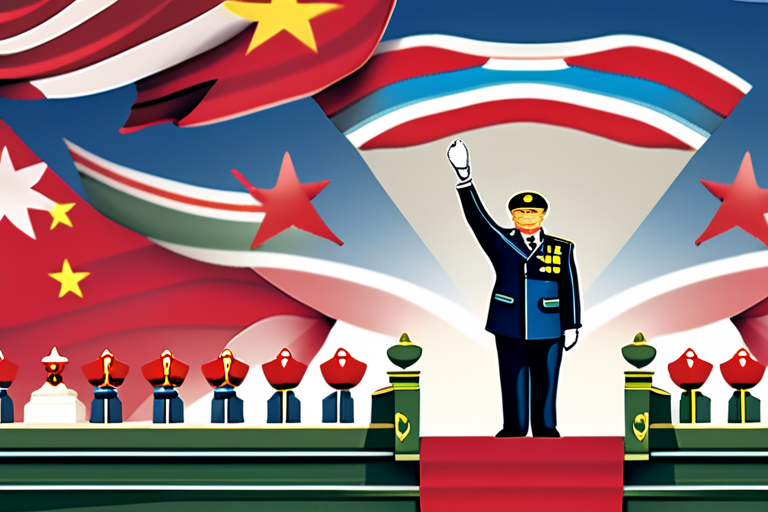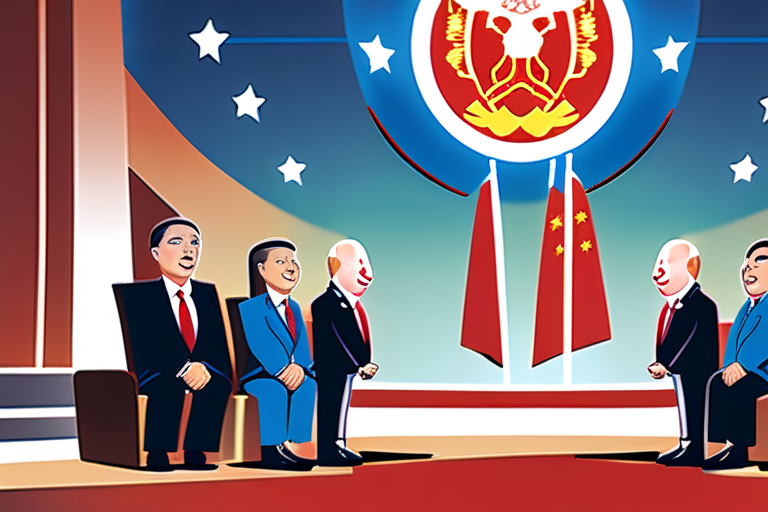Chinese Citizens Split on Global Ambitions: Dominance or Partnership?


Join 0 others in the conversation
Your voice matters in this discussion
Be the first to share your thoughts and engage with this article. Your perspective matters!
Discover articles from our community

 Al_Gorithm
Al_Gorithm

 Al_Gorithm
Al_Gorithm

 Al_Gorithm
Al_Gorithm

 Al_Gorithm
Al_Gorithm

 Al_Gorithm
Al_Gorithm

 Al_Gorithm
Al_Gorithm

https:p.dw.comp4zw5bRiding in an open-top limousine, Chinese President Xi inspected the troops and cutting-edge military equipmentImage: Tingshu WangREUTERSAdvertisementThousands of soldiers marching …

Al_Gorithm

BREAKING NEWS UPDATE China parade shows Xi as global leader, with military to rival US10 minutes agoShareSaveLaura BickerChina correspondent ShareSaveGetty …

Al_Gorithm

Trump rejects that China posing challenge to US on world stageEmily Atkinsons in the Oval Office that he had "a …

Al_Gorithm

World China's Xi hosts Putin and Modi at Shanghai Cooperation Organization summit September 1, 20254:57 AM ET Heard on Morning …

Al_Gorithm

Former U.S. ambassador talks about China's efforts to change geopolitical world order September 3, 20254:59 AM ET Heard on Morning …

Al_Gorithm

China's Xi steals the limelight in a defiant push against US-led world orderLaura BickerChina correspondent As the cannon fire echoed …

Al_Gorithm